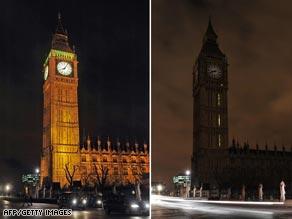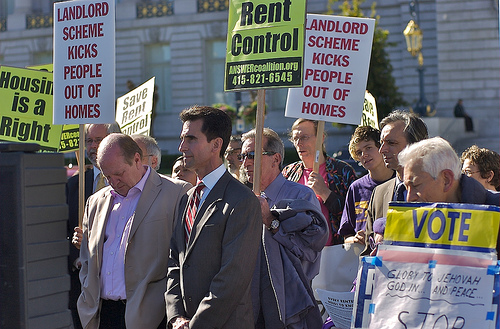
Marcus Cederqvist
I received the note below from Marcus Cederqvist in response to a recent post on rent regulations. Marc is an old friend and the former Executive Director of the New York City Board of Elections. He is now Executive Director of the Manhattan Republican Party. I can’t resist posting his remarks (below.)
I received an email a few days ago from a friend that he forwarded to a large group of people urging us to call the Governor’s office immediately and demand the renewal of rent regulations and repeal of all vacancy decontrols. Further, the instruction was given to implore the Governor to tie the extension of rent regulations, albeit with the removal of vacancy decontrols, to the State FY12 budget due on April 1st to leverage its urgency.
I do not live in a rent regulated apartment. My wife and I moved into a one bedroom apartment last year and are very happy here. I have lived on the Upper East Side of Manhattan for my entire life, save four years in the tundra of western New York for college, and this is by far the nicest place I have lived as an adult. In fact, it’s the first time I have lived in a doorman building since living with my parents. Many of my neighbors in the building, however, most likely live in rent regulated units.
It is a typical 1960s era building that are fairly ubiquitous throughout the eastern part of the Upper East Side – about 20 stories high with approximately 200-250 units. The garage downstairs is littered with late-model luxury cars, except on weekends, when it is virtually empty. “Off to our house in the Hamptons” is a common refrain when we ask our neighbors what their plans are for the weekend. They also seem to take a lot of vacations, regularly parading through the lobby in leisure attire with suitcases in tow and dashing into a Town Car to whisk them to the airport.
A majority of our new neighbors appear to be in their 60s or 70s, although that can be difficult to judge and I certainly wouldn’t be so rude as to ask in order to better ascertain an accurate survey. During casual conversations in the lobby or elevator, we have learned that many of them have been here 20, 30 years or more, thereby adding to the likelihood that they are, in fact, in regulated units. I don’t get the feeling that covering the rent is creating too much angst for them. By contrast, my wife and I struggle to pay our rent and sacrifice many luxuries and indulgences to live here. Nonetheless, we are extremely happy to be here.
Back to my friend – I replied to his email and told him that I support the renewal of rent regulations in New York City but felt that my wife and I were effectively subsidizing our neighbors and their vacations and second homes. Within minutes, he sent a terse email back, with a robust “cc” list, accusing me of siding with landlords and the landlord lobby. He further accused me of trying to push the middle class out of the city and jeopardizing the city’s tax base.
Frankly, I don’t really care about landlords and don’t see how my line of questioning would be viewed as advocating on their behalf. Although many landlords are honest businesspeople who have the best interests of their customers in mind, many do not. Those who own buildings with regulated apartments knew when they invested in the property that the rents were regulated and that was certainly factored into their cost of purchase. Recent news articles even imply that landlords actually want the rent regulations renewed because, in the current economic environment, these not only guarantee that rents will not recede but that they will actually increase by action of the City’s Rent Guidelines Board. A considerable majority of New Yorkers, like me, are neither landlords nor the beneficiaries of rent control and rent stabilization.
In the interest of full disclosure, I should note that I have lived in two rent stabilized apartments in my lifetime. I even received what is known as a “preferential rent” at both of these apartments. For those who are unfamiliar with this term, a “preferential rent” means that the rent I was charged under the lease was actually less than the landlord was allowed to charge legally. Although this might justifiably lead one to conclude that I was somehow gaming the system, the more pedestrian truth is that the landlord was not able to find a renter who deemed the unit worthy the rent he was allowed to charge. The market collectively determined that the apartment was overpriced and they had to cut the rent.
I dutifully clicked “reply all” to my friend’s email to assure everyone that I did not believe that rent regulations should be allowed to expire. Such a scenario is not realistic and would be incredibly destructive, chaotic, and cruel. I continued that I believe rent regulations in Manhattan have created an environment dividing the “haves” from the “have-nots,” in this case those who have a great deal that they really don’t need on an apartment versus those who do not. The second category is considerably larger but those in the first have considerably more at stake, thereby explaining their hysteria. The only way to be in the first category is to have had the incredible fortune of good timing by moving into a regulated apartment many years ago or inheriting it from a family member who did. Need proof of how good a deal it can be? A friend recently confessed that her mother actually turns away business regularly so that she can stay under the income limit for decontrol. Her mother lives alone in a huge two bedroom apartment that she has rented for several decades just steps from Central Park and overlooking one of the world’s most well known museums on Fifth Avenue in Carnegie Hill. I doubt that lawmakers decades ago intended to retard economic activity with rent regulations but they clearly did in this case. It’s hard to argue with Adam Smith’s theory that people act in their own best self interest.
The only rent stabilized apartments that my wife and I would be able to get are small studios or one bedrooms in walk-up buildings that actually turn over more than once every other generation. When we are blessed with our first child this summer, there will be no available stock of affordable regulated larger apartments for us to choose from. Anyone who has one, regardless of their circumstance, is well aware of the folly in ever giving up such an apartment – thereby creating a situation completely unique to New York City. In most of the country, people move to smaller homes when they age and fewer people are living there because they can’t afford the larger home – here people in regulated units tend to stay because they can’t afford to leave.
In my email response I concluded by asking how my neighbors’ spending their money in Bermuda and the Hamptons helps the City’s tax revenue collection. This was again followed swiftly by a response from my friend, albeit to a much smaller “cc” list, with the unsolicited public policy pronouncement that: MCIs (major capital improvement adjustments) should not be counted towards decontrol; that the minimum rent for decontrol should be raised to $3,000 a month; and that the income limit for decontrol should be raised to $300,000 and unearned and retirement income should not be included in such a calculation.
And there’s the rub – I seem to have touched a nerve. My friend is 67 years old and raised a family in his current home – a gorgeous three bedroom apartment on the Upper East Side with views to die for. The kids moved out long ago but he keeps himself busy with a successful law practice and investments on the side. He also owns a condominium in Miami and a weekend house in Pennsylvania – and a beautiful Mercedes-Benz. I clearly wasn’t going to persuade him to change his views.
I again hit “reply all” and wrote: “Here’s a simple proposal – anyone who has a rent regulated apartment cannot own property anywhere else. That way we city taxpayers are not subsidizing a select few to bring their wealth elsewhere. If they can afford to pay rent and buy property elsewhere then they can just as well buy something here and don’t need the subsidy. That seems fair…”
He did not respond to that email, nor have I heard from him since.








